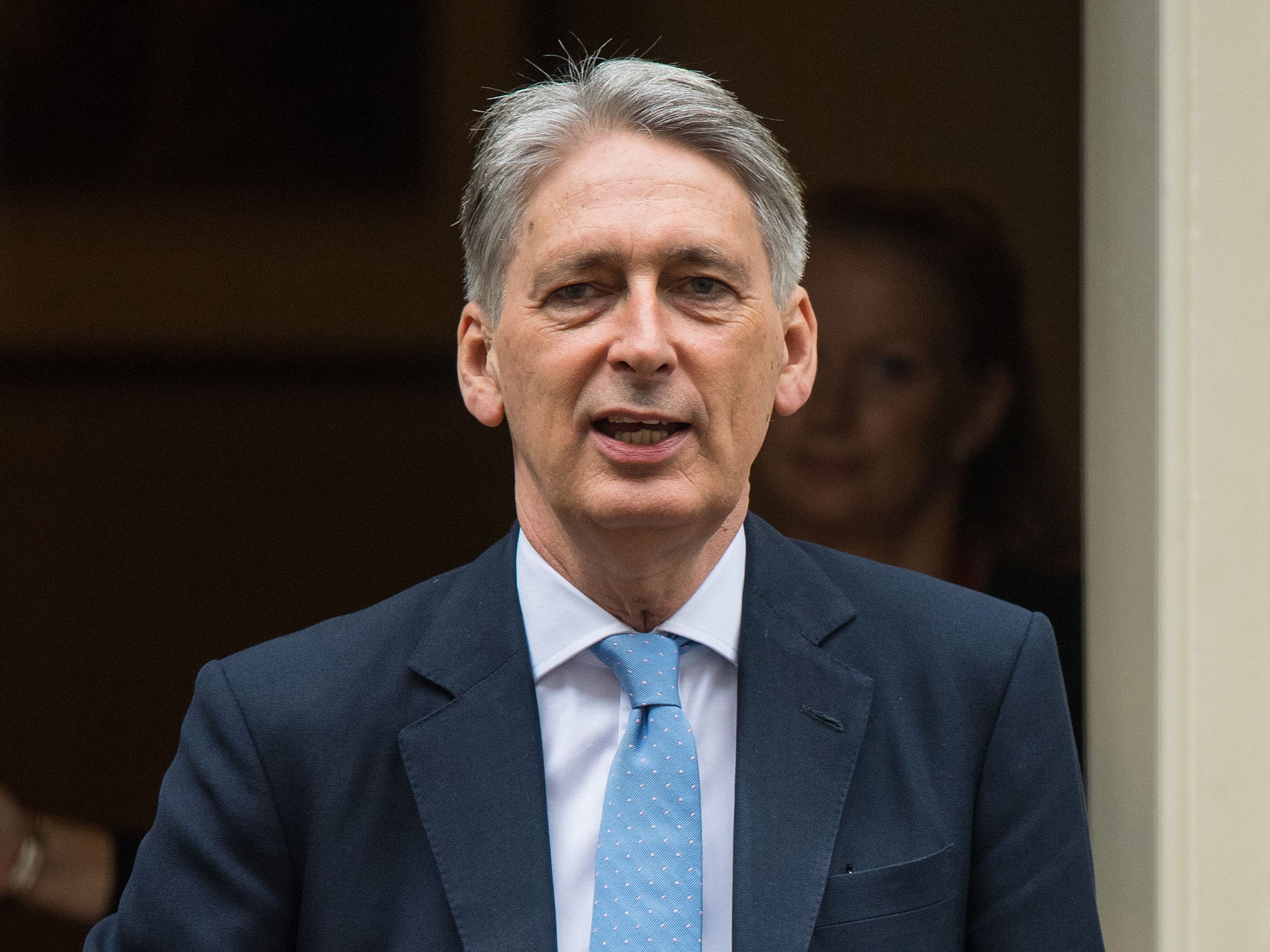Philip Hammond warned he has 'no chance' of tax rises to wipe out the Budget deficit
Institute for Fiscal Studies suggests huge spending pressures - combined with a weak political position - will force the Chancellor to abandon his target for balancing the books

The Chancellor has been warned he has “no chance” of getting tax rises through Parliament and will have to abandon his target for balancing the books.
The Institute for Fiscal Studies said Philip Hammond’s options were narrowing ahead of Budget Day next month, potentially forcing him to rip up his spending rules.
The Conservative election manifesto said the budget deficit would finally be wiped out “by the middle of the next decade” – itself a decade later than George Osborne originally pledged.
But, said IFS director Paul Johnson, Mr Hammond was now faced with finding billions for the NHS, for higher public sector pay and to halt punishing benefit cuts.
However, after the Conservatives lost their Commons majority, the Government would find it all-but impossible to raise the revenue to pay for that.
“There’s no chance – probably - of getting any tax increases through parliament,” Mr Johnson told BBC Radio 4’s Today programme.
The Chancellor had little choice but to admit he was “not taking seriously the fiscal rules I’ve supposedly set myself” – pushing back the date for balancing the books again.
“There is a case for increasing taxes a bit, and maybe increasing spending a bit more – but he can’t do the tax side of that.”
Abandoning, yet again, the 2025 date for removing the budget deficit would be a major political headache for Mr Hammond, one of the Cabinet’s Thatcherite flame-bearers.
Only last week, he told the BBC: “We've already moved the target for balancing the books out from 2020 to 2025, but continuing to drive down the deficit in a measured and sensible way over a period of years….has to be the right way to go.”
Meanwhile, the Chancellor is believed to be pressing to free up green belt land to build more homes, but facing opposition from the Prime Minister.
According to The Times, a senior ally of Theresa May said she has ruled out changes to green belt planning rules in the Budget, on November 22.
Elsewhere the Chancellor is under pressure to scrap stamp duty to free up cash and boost the housing market. The Adam Smith Institute described the tax as “almost as bad as setting fire to the money instead of raising it in tax” and said it should be “consigned to the dustbin of history”.
Oliver Letwin, a former Conservative Cabinet minister, called for extra funding for health and social care through a ring-fenced tax rise, rather than for deficit reduction to be postponed.
“I think if we did that, that would command popular support because I think people do recognise that the pressures on social care and the health service are now too great.”
Ahead of Budget Day, the Chancellor also faces the problem of the independent Office of Budget Responsibility (OBR) downgrading the UK’s future productivity growth.
It alone could push up forecast borrowing to £33bn in 2020-21 – eroding half of the “rainy day” pot the Chancellor has set aside for post-Brexit economic turmoil.
Borrowing will also go up as a result of giveaways announced since March, including the reversal of plans to raise self-employed and £1bn pledged to Northern Ireland.
Join our commenting forum
Join thought-provoking conversations, follow other Independent readers and see their replies
Comments
Bookmark popover
Removed from bookmarks